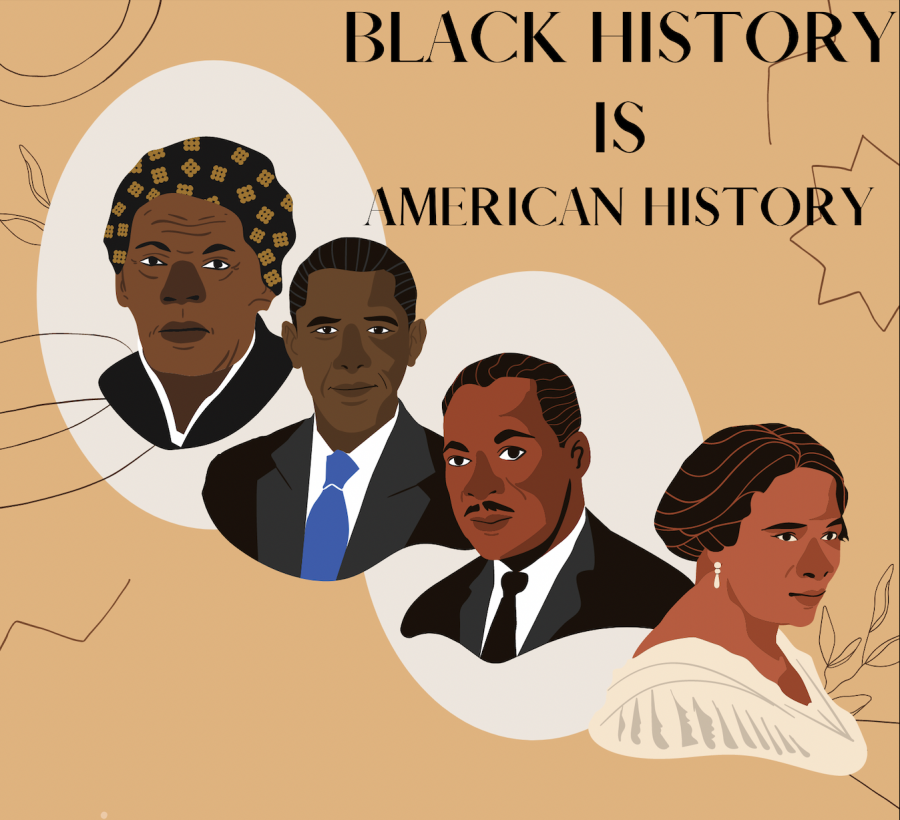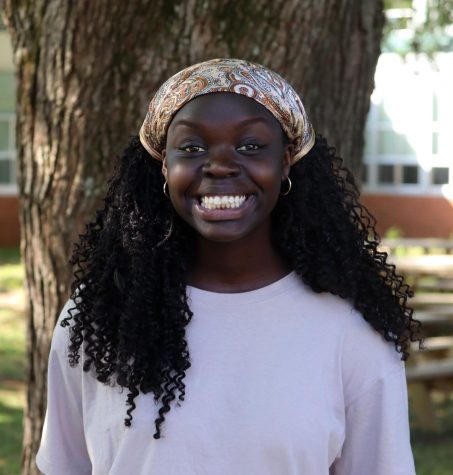Going Beyond Black History Month: An opinion
February 24, 2021
Every February, Black history is acknowledged and uplifted for 28 days. However, much of the history is otherwise ignored within the U.S, despite it being a critical part of American history as a whole.
So often, the same Black history figures, such as Martin Luther King Jr. or Rosa Parks, are introduced to students across the nation. However, learning about their extraordinary contributions cannot make up for the neglect of over 400 years of history.
Past historian and founder of Black History Month Carter G. Woodson believed that Black men and women were only included in history lessons during discussions of slavery, as reported in The Blount Countian, an independent news source.
“It’s important that we learn more about other black historical figures because just as we learn about white history, we need to learn about black culture fully too,” Junior Kyra Wilson says. “People like Daniel Hale Williams who paved the way in the medical field, or Lena Horne who paved the way for so many women with her voice. These are African Americans who have made the world a better place in different ways.”
However, solely recognizing influential figures is not enough. The lightly grazed topic of slavery in American schools fails to fully educate students about the gruesome period of time that spanned from 1619 to the nineteenth century.
Spartacus Educational, a historical reference site, details the treatment of slaves within the original colonies and the South, including descriptions of the cruel punishments they were subjected to. African American novelist and abolitionist William Wells Brown also wrote explicitly about the punishments that slave owners in Virginia would regularly enforce against their slaves in “The Punishments He Received.”
Sophmore Kyla Aubertin agrees that information about slavery is limited in schools, allowing it to be easily dismissed.
“It’s a disservice not only to black students, but all students,” Aubertin says. “When we learn about slavery, it’s extremely white-washed because we never get to learn about what actually happened to slaves, even though it’s absolutely horrific, I feel like it’s necessary for us to learn these things because it wasn’t just whippings and unpaid work. It was raping, murdering, and uncomphrensable inhumane acts.”
Black history has never been fully taught or given the chance to be understood.
Senior Ketsia Nyamuhindu agrees that it is important to understand black history because it provides a source of lineage for many Black people in America.
“It’s important to learn about black history prior to slavery because it allows black people in America to realize that they don’t just come from slaves. They also come from kings and queens and some of the best knowledge and empires in the world,” Nyamuhindu says.
An article published in the Daily JSTOR, a digital academic library, reports that the Colonial National Monument, founded by the National Park Service in 1931 and redesignated as a national historic park, erased the history of African Americans from the year 1619 onwards, leaving out two and a half centuries of institutionalized slavery. Although the Colonial National Monument, which connects the historical sites of Jamestown, Williamsburg and Yorktown, was meant to preserve and interpret America’s past, it initially dedicated itself to furthering the idea that “American history was to be the culmination of Northern European Protestant destiny,” as written in the article. There was no mention of slavery in the pamphlets distributed throughout the historical sites until they were revised in 1946.
Without Black history, a large portion of American history and identity ceases to exist.
“We’ve contributed so much to pop culture, food, dancing, music, style and fashion. Not only that, but basic and everyday necessities and furthering technology,” Aubertin says. “If we are going to grow as a society and get better we can’t do that without knowing our history because history will repeat itself if it’s not taught.”








